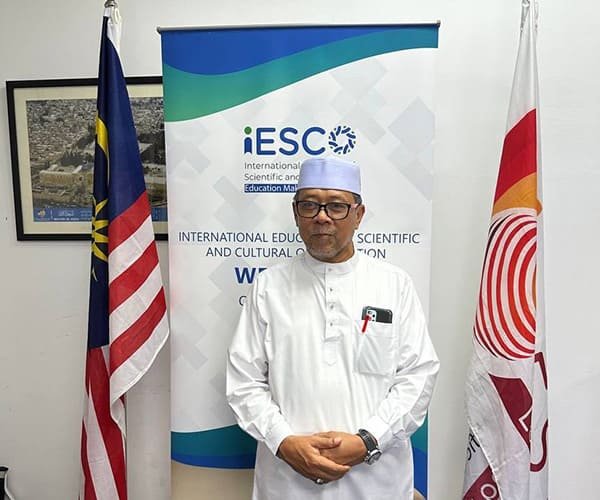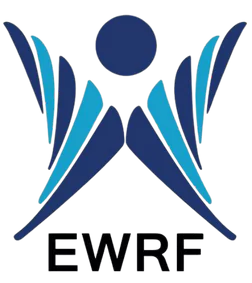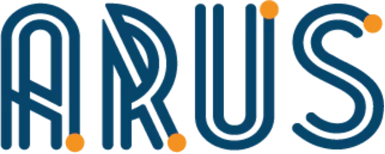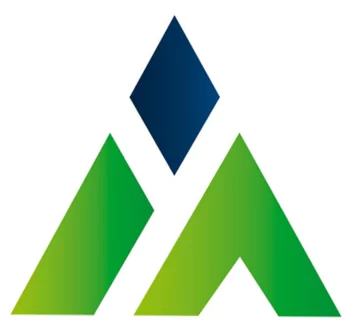Have you ever wondered which Education NGOs are making the biggest impact on education access and helping needy students in Malaysia? Education is the cornerstone of a thriving society. And in a country as diverse and rapidly developing as Malaysia, ensuring that every child has access to quality education is more important than ever. Education NGOs in Malaysia are working tirelessly to do just that. These organizations’ efforts and programs bridge educational gaps, and support underserved communities.
This article explores the top 5 education NGOs in Malaysia, highlighting how they create change through their efforts, impact, and innovative approaches.
This article is designed for educators, parents, students, policymakers, and anyone interested in Malaysia’s educational landscape. It also provides a valuable resource for those looking to support or get involved with education-focused NGOs.
What Does an Education NGO Do?
Education NGOs, or Non-Governmental Organizations, play a vital role in enhancing educational opportunities and addressing gaps in the education system. They actively support and improve education through various methods, focusing on areas that traditional government systems often underserved or neglected.
Education NGOs aim to ensure that all individuals have access to quality education, regardless of their socio-economic status or geographical location. They work to bridge the educational divide by providing resources, support, and innovative solutions to educational challenges.
Here’s a closer look at what these organizations do:
Typical Education NGOs Activities and Programs
1. Educational Access Programs
Education NGOs often run programs that aim to increase access to education for underprivileged or marginalized groups. This can include providing scholarships, building schools in remote and war-impacted areas, or offering alternative education models for those who cannot attend traditional schools.
2. Teacher Training and Development
Many NGOs focus on improving the quality of education by enhancing the skills and knowledge of teachers. They offer training workshops, professional development courses, and resources to help teachers improve their teaching methods and stay updated on educational best practices.
3. Policy Advocacy
Education NGOs often engage in advocacy work, aiming to influence education policy and reform. They work with government bodies, educational institutions, and other stakeholders to promote policies that improve educational outcomes and address systemic issues within the education system.
4. Community Engagement
These organizations also work closely with communities to promote the value of education and encourage community involvement in educational initiatives. This can involve organizing community meetings, workshops, and events that foster a supportive environment for education.
Top 5 Education NGOs In Malaysia
Now that you understand what education NGOs do, let’s explore the main active 5 Education NGOs in Malaysia.
How We Chose the Top 5
Selecting the top 5 education NGOs in Malaysia was a meticulous process. We wanted to ensure that the organizations featured not only made a significant impact but also demonstrated a commitment to long-term sustainability and innovation. Here’s how we narrowed down our choices:
- Impact and Reach: We looked at the scale of each NGO’s impact. How many students and educators have they reached? What measurable changes have they brought about in the communities they serve? NGOs that have made a substantial and lasting impact on education were given priority.
- Programs and Initiatives: The quality and variety of programs offered by these NGOs were crucial. We evaluated whether they provide comprehensive educational support, including access to education, teacher training, policy advocacy, and more. NGOs with innovative and effective programs that address key educational challenges were highlighted.
- Community Engagement: We considered how these NGOs engage with the communities they serve. Organizations that foster strong relationships with local communities, involve them in decision-making processes, and create programs that reflect community needs were given preference.
- Sustainability and Innovation: Lastly, we assessed each NGO’s commitment to sustainability and innovation. Are they using creative approaches to solve educational problems? Do they have strategies in place to ensure the longevity and scalability of their programs? NGOs that demonstrated forward-thinking and sustainable practices were selected.
The Selection Process
Our selection process involved a thorough review of available data, including reports, case studies, and direct feedback from beneficiaries. We also considered the organizations’ reputations within the education sector in Malaysia, ensuring that those chosen were recognized for their credibility and effectiveness.
1. IESCO (International Educational and Scientific Cultural Organization)
IESCO is an influential Education NGO in Malaysia, dedicated to enhancing educational opportunities and promoting cultural exchange, especially in conflict and war zones.

Founded with the vision of transforming lives through education, IESCO has made significant strides in supporting students and educators across various regions, particularly in areas affected by poverty and war. Through its diverse programs and partnerships, IESCO continues to play a vital role in the educational landscape, both locally and internationally.
Key Programs
IESCO runs several impactful programs designed to empower students and educators:
- Scholarships and Grants: Provides financial support to underprivileged students, particularly from conflict zones, enabling them to pursue higher education in Malaysian universities.
- Empowering Students & Graduates: Offers vocational training and professional development to equip students with the skills needed for the workforce.
- Adapting Universities for Disabled Students: Focuses on transforming university facilities to accommodate and support disabled students, ensuring their comfort and safety.
- Emergency Intervention Program: Addresses the educational needs in conflict zones by establishing virtual learning platforms and refugee schools.
IESCO Impact
Since its inception, IESCO has made a significant impact by assisting over 9,500 students and completing six major projects that support educational development in underprivileged regions.
The organization has awarded more than 100 IESCO scholarships, contributing to the academic and professional growth of its beneficiaries. IESCO’s focus on empowering students in regions affected by conflict has also enabled them to reach some of the most vulnerable populations, offering hope and opportunities for a better future.
Community Engagement
IESCO actively collaborates with local communities and international partners, including universities and other NGOs in Malaysia, Indonesia, Turkey, and beyond.
This collaboration ensures that their programs are well-tailored to the needs of the communities they serve. The organization also engages with the public through campaigns and initiatives aimed at raising awareness and garnering support for their mission, such as their ongoing efforts to support education in Gaza.
2. Teach For Malaysia

Teach For Malaysia is an organization driven by a deep commitment to addressing educational inequality among Malaysians. They believe that every child, regardless of their socio-economic background, deserves access to an excellent education.
To achieve this, they place passionate young leaders as teachers in high-need Malaysian schools, where they can make a real difference in the lives of students who need it most.
Teach For Malaysia’s mission is straightforward yet ambitious: to bridge the educational divide by empowering young leaders to teach in under-resourced schools. Their vision extends beyond just teaching; they aim to inspire systemic change in the education system, ensuring that all children in Malaysia can access quality education.
This mission is critical in a country where educational opportunities can vary significantly depending on where a child lives or their family’s income.
Key Programs
Teach For Malaysia efforts are centered around main key programs:
- Fellowship Program: A two-year leadership development initiative where Fellows teach in under-resourced schools, dedicating half of their time to teaching and the other half to leadership and community projects.
- Leadership Development: Ongoing training and mentorship provided to Fellows to enhance their teaching effectiveness and leadership capabilities.
- Community Mobilisation: Engagement with local communities to design and implement initiatives that address the specific needs of students, ensuring sustainable and locally relevant solutions.
Impact
The impact of Teach For Malaysia is measurable and significant. The organization has successfully placed hundreds of teachers in schools across the country, where they have positively influenced thousands of students.
Their work has led to tangible improvements in student outcomes, with many students showing considerable academic growth.
Community engagement
Engaging with the community is at the heart of Teach For Malaysia’s approach. The organization understands that to create lasting change, it’s essential to work hand-in-hand with the communities they serve. Teachers collaborate with local stakeholders to develop and implement projects that address specific community needs.
Teach For Malaysia also partners with the Ministry of Education and other NGOs to ensure that their efforts are aligned with broader educational goals and to maximize their impact.
3. The Educational, Welfare & Research Foundation Malaysia (EWRF)

The Educational, Welfare & Research Foundation (EWRF) is a prominent NGO in Malaysia dedicated to empowering marginalized and vulnerable communities through education and welfare programs. Founded in 1979, EWRF has been instrumental in providing educational support, character transformation programs, vocational training, and psycho-social counseling. The organization’s mission is to uplift disadvantaged communities, particularly the Malaysian Indian population, by equipping them with the skills and knowledge needed to break the cycle of poverty.
EWRF’s mission is to empower marginalized and vulnerable communities, particularly those from the B40 income group (bottom 40% income earners in Malaysia), through a range of educational and welfare programs.
Their vision is to create an equitable society where everyone, regardless of their background, has access to the resources needed for a better future.
Key Programs
EWRF runs several impactful programs that cater to different aspects of education and welfare:
- Character Transformation: Focuses on personal development, helping individuals build the confidence and skills needed to thrive.
- Vocational Training: Provides practical skills training to help individuals secure employment and improve their economic standing.
- Psycho-Social Counseling: Offers support for mental health and emotional well-being, particularly for those facing significant life challenges.
- Research Initiatives: Conducts studies to identify the needs of marginalized communities and develop targeted interventions.
EWRF’s approach to community engagement involves active collaboration with local communities, other NGOs, and governmental bodies.
4. Arus Academy

Arus Academy is a trailblazer in transforming education through innovative teaching methods and student-centered learning. Founded in 2014 by a group of passionate educators, Arus Academy’s mission is to cultivate a love for learning by making education more engaging, relevant, and accessible to all students in Malaysia.
The organization operates on the belief that every child has the potential to succeed if given the right tools and opportunities. Arus Academy focuses on fostering critical thinking, creativity, and problem-solving skills through its unique educational programs, which are designed to be both interactive and practical.
Key Programs
Arus Academy offers several innovative programs aimed at reshaping the educational landscape:
- STEM & Project-Based Learning (PBL): Arus Academy integrates Science, Technology, Engineering, and Mathematics (STEM) into their curriculum. They emphasize hands-on, project-based learning. Students engage in real-world problems, using STEM to develop solutions, thus bridging the gap between theory and practical application.
- Digital Maker Program: This program empowers students to become creators of technology rather than just consumers. By teaching coding, robotics, and digital literacy, Arus Academy equips students with the skills needed for the digital age.
- Teacher Empowerment: Arus Academy also focuses on professional development for teachers. Through workshops and training sessions, educators learn how to implement project-based learning and integrate technology into their classrooms.
Impact
The academy has reached over 50,000 students and trained more than 3,000 teachers nationwide. Their approach has not only improved student engagement but also helped students develop critical 21st-century skills that are essential for their future success.
In underserved communities, where educational resources are often limited, Arus Academy’s programs have provided much-needed support, helping to close the educational gap and offering students the tools to break the cycle of poverty through education.
5. Yayasan AMIR

Yayasan AMIR is a prominent not-for-profit organization in Malaysia, established in 2010 by Khazanah Nasional Berhad. The foundation’s primary mission is to improve access to quality education for underserved communities through its innovative Trust Schools Programme. This program represents a public-private partnership with the Ministry of Education (MOE).
Yayasan AMIR focus on leadership development, curriculum improvements, and school management enhancements to ensure students from all backgrounds have the opportunity to succeed.
Key Programs
Yayasan AMIR’s efforts are centered around several key programs:
- Trust Schools Programme: This initiative seeks to revitalize schools by improving leadership, teaching practices, and community involvement.
- Leadership Programs for School Leaders: These programs provide training and support for school principals and administrators. It aims to equip them with the skills necessary to lead effectively and drive change within their schools.
- Student Support Services: This includes a range of initiatives that support students’ academic and personal development, ensuring they receive the guidance and resources needed to thrive.
Collaboration with the Ministry of Education is central to Yayasan AMIR’s approach. By working closely with the MOE, the foundation ensures that its initiatives align with national education goals and policies.
Final Words..
Education NGOs in Malaysia play a crucial role in bridging the gaps in the education system, providing opportunities and resources where they are most needed.
These NGOs are more than just service providers; they are changemakers, working tirelessly to create a more equitable and inclusive educational landscape in Malaysia. Whether through innovative teaching programs, leadership development, or community-driven initiatives, their contributions are vital to the future of the country. By supporting these organizations, you too can be part of this transformative journey, helping to build a brighter, more educated Malaysia for generations to come.







